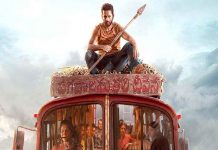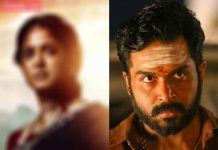Srivathsan Nadadhur
The philosopher in Subhalekha Sudhakar often remains in touch with the actor in him. The veteran, who turns 60 this year, is a balanced soul and never lets emotion get the better of him. He claims to have lived a life full of enriching experiences and has never succumbed to self-pity when destiny hasn’t smiled at him. As an actor, he has been secure, very aware of his limitations and accepted most work that came his way.
With his lanky physique and excellent spontaneity, he was a natural choice to play the cheeky, light-hearted youngster in the early 80s but RGV’s Shiva unleashed a new dimension in an actor who deserved a wider variety of roles than what he was being offered. He entered television when most of his contemporaries dissed it, but it ended up making him a household figure in the small-screen industry and revived his career in films too. He turns a new leaf with his OTT debut through Johaar, that released on Aha recently.
You had ambitions to be a cricketer but made a career in acting. Looking at how your four-decade career has progressed, it seems that everything has happened for a good reason…
I always stand by this philosophy that ‘Man proposes, God disposes’. The almighty is the best person to decide what you have to do and what you’ll be. It’s wonderful to have a long-lasting career in the entertainment business. There have been so many youngsters like me who came to the industry with the same passion and the urge to become a very good actor. Unfortunately, some of them couldn’t make it and some of them aren’t there in this world anymore. When I look back at such instances and the minuses that I had – someone with modest looks, with no Godfather in the industry and who had another career in mind before he landed here – it’s humbling that I am finding work, being recognised for it and getting to share my acting experiences after four decades.
If not for Subhalekha, what’s the prefix you would have preferred for your name?
When I finished doing Subhalekha and there was a screening of the film, someone was discussing if there was a need to change my name because the other Sudhakar was a very popular actor by then. K Viswanath (garu) had told that both Sudhakars will get the due they deserve and there was no need to change the name. ‘Chakkati peru, amma nannalu pettina peru,’ he said. I was credited as Sudhakar in it. However, beyond a point, there was confusion among people who were trying to reach out to both the Sudhakars. It became easier for assistant directors and production crew to refer me as an actor who starred in Subhalekha and in a matter of time, I was addressed as Subhalekha Sudhakar. It was more of an industry need.
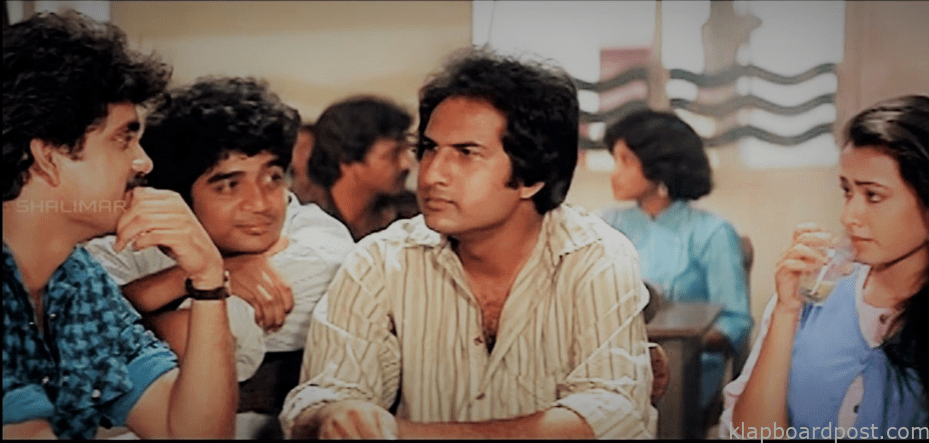
Even if I wasn’t called Subhalekha Sudhakar, I am not sure if I would have considered another screen name. Probably my surname Suravajhala would have been attached to my name. Would I have thought of any other film name for a prefix? I doubt that too, it’s hard to imagine my name with my other popular films like Rendu Jella Seetha, Mantrigari Viyyankudu or a Chitram Bhalare Vichitram. By the time Shiva had released, I had many popular films and couldn’t have gone back on it. To be called as ‘Shiva’ Sudhakar wouldn’t have been practical (laughs).
Across multiple interviews, you’ve talked about the importance of not getting carried away by success. However, your film career began on a victorious note with the likes of Subhalekha, Mantrigari Viyyankudu, Rendu Jella Seetha and Sithaara. How did you remain grounded despite your initial successes?
My disciplined upbringing played an important role; I credit my school teachers and college professors for it too. People who are elder to you are of great influence as you grow because they would have experienced the vagaries of life on a deeper level and I keenly listened to their views. When I entered the industry, I am thankful for knowing people who didn’t mind pointing me out when I did anything wrong. One must understand that the film industry is an artificial place and it’s easy to get carried away by success. The biggest of visionaries and luminaries you wouldn’t have even dreamt of meeting, begin interacting with you – it’s a dreamy space.
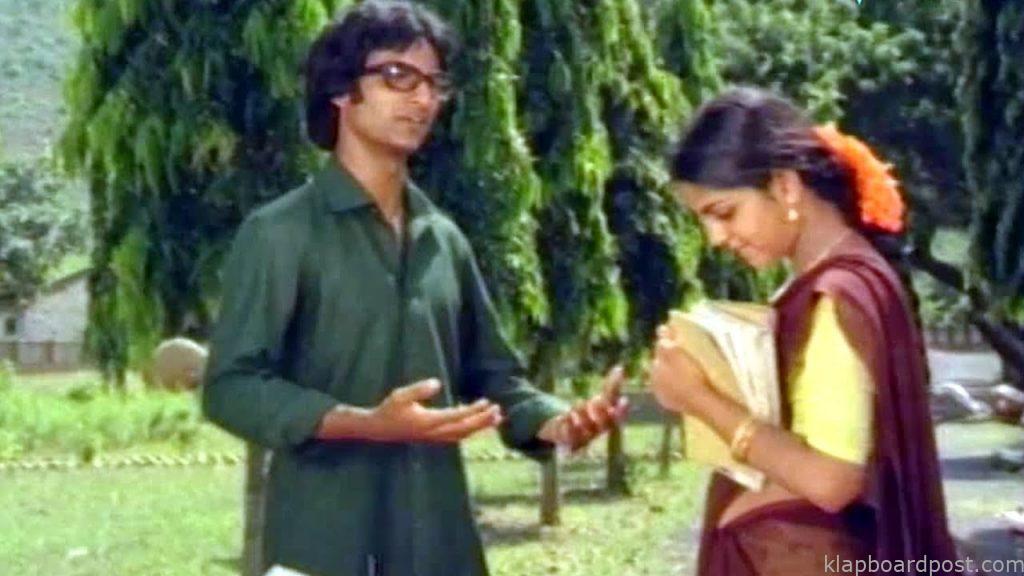
Every person has an element of ego in him/her – it’s like a snake with a hood. Once the snake raises the hood, one loses sight of all the wisdom and knowledge they had earlier possessed. It’s always important to keep oneself in check. Everyone in this industry talks behind you and act innocent when you appear in front of them. Being witness to this in my early days was an eye-opener. It taught me to mind my work and not cause any problem to anyone. Even as I did that, there were wagging tongues and I understood it’s impossible to control that. Ups and downs are part of every profession and I’ve seen the reactions of the industry when times weren’t so rosy.
Were you surrounded by examples where people took success a little too seriously?
Yes, many of them. Those were the days I was doing films after a long gap in the late 90s. A young actor sitting by my side reminded me of my early struggles and spoke of the passion with which he entered the industry. It was peak summer, he was thirsty and asked a worker on the set for water, who didn’t attend to him even after multiple requests. Ultimately, I had intervened and asked the worker for the same glass of water and it arrived on my table in no time. The young actor was disappointed to notice such mistreatment and I had told him the quick reaction from the worker was only because a television serial of mine was doing well then.
We returned for the second schedule in a few days and the young actor’s earlier film had released and was having a fantastic run at the theatres. The situation had changed and the workers on the set were offering him snacks, tea and water without even asking. I had a hearty laugh with the contrasting treatment meted out to him a few days before and told him to enjoy his success, but not let it go to his head. Unfortunately, the latter happened and the actor is to be seen nowhere now.
You worked with a debut filmmaker Teja Marni for your OTT debut Johaar. What helps you differentiate a good filmmaker from a poor one?
Any actor regardless of their stature trusts their gut instinct before they take up a project. While telling what prompted me to trust the first-timer to helm Johaar, it’s important to remind you of an incident in 1989 when another first-time filmmaker offered me a role of the hero’s friend and told that it would be very crucial in bringing about the transformation of the protagonist in the story. It was RGV and the film was Shiva; the rest was history. The director is always the captain of the ship and sees the larger picture of the story.
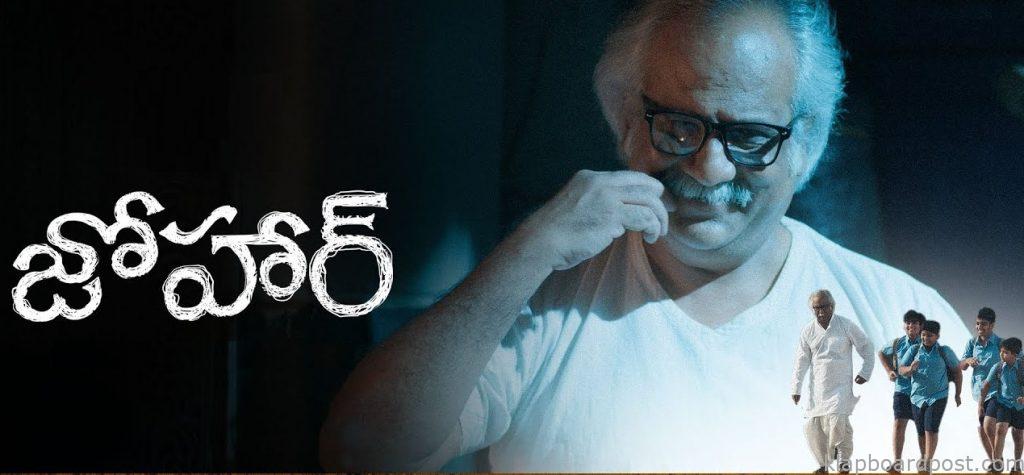
I look for clarity of a filmmaker and Teja Marni informed me I would play a patriot inspired by the principles of Subhash Chandra Bose who runs a home for orphans to pursue their education. He offered me a gist of the story that would have five subplots and I was genuinely impressed. Frankly, I am not in a position where I have ten filmmakers lining up to cast me in different projects. Throughout my career, while shooting for a particular film, I always wondered if I would be able to get a new project after a shoot wraps up and I somehow ended up getting one film after the other. I was trying to do justice to everything that was coming my way and have never been in a position to choose. It’s easy to sound modest and say ‘script is everything’ but I never had that liberty. Some choices work and some don’t.
Is this to suggest that you were unaffected by failure?
Everyone is human and is disappointed when their films don’t run well. I am like any other common man getting affected by his highs and lows and acting is just my profession. Analysing our decisions helps us progress. Films succeed because of a committed team, a strong story and how it’s ultimately executed with the help of people working on the 24 crafts. There are three stages to every film – the writing, the execution and the reception. Everyone holds their head high when films succeed and claim their piece of the pie, be it the writer, producer, director, actor, composer or the production person who serves tea to all the people above. Surprisingly enough, these people blame each other when a film flops and never take up responsibility for it.
These debates aside, one should hold a mirror and introspect for themselves. No one is completely wrong or right in the industry and everyone has a perspective. One should be ready to accept suggestions from people seriously before it’s too late. It’s easy to introspect after you fail but it’s important to make the right decisions at the right times. A film person should always be open for a discussion and not an argument. Discussion allows expression of many thoughts but an argument tells ‘only one thought is right’.
You play a selfless patriot named after Bose in Johaar. What’s your idea of patriotism?
Treating every human equally is my idea of patriotism. The independence struggle was fought for freedom from a rule. We were under the mercy of a foreign rule and all that we had asked was to be treated equally. What inspired Gandhi to fight for the freedom struggle? It all began when he was ill-treated on the basis of race and colour when he boarded a train in South Africa. He wanted everyone to be given similar treatment. The struggle stemmed from the fact that we as citizens of a country had every right to be treated equally. Everyone united with that cause, helping us enjoy the freedom we have today.
The paths of Subhash Chandra Bose and Sardar Vallabhai Patel diverged from the ways of Gandhi later. Everyone had their own set of followers and began claiming credit for independence and the divide originated then. The war of words continues till today and our leaders twist facts in their favour and mislead people in the name of caste, creed and religion. When people had solely followed Gandhi’s ideology, there were no such discussions and the only focus was about ending the discriminatory rule. If one notices in Johaar, the orphanage ran by my character Bose doesn’t discriminate children on any basis. It would be great if a viewer grasps that undercurrent.
Johaar reminds us that a common man remains helpless in the hands of corrupt leaders. The reality, much like the film, doesn’t offer us much hope…
A common man’s plight is still the same. Like how a computer and the internet are a repository of information, a politician’s mind is like a computer in a different sense. It’s filled with only one word and that’s ‘corruption’. In times where Doordarshan had just begun telecasting assembly sessions on television, I was witness to two politicians arguing incessantly about an issue; to an extent that I feared they would beat up each other. In another event on the same day where I accidentally met them, I noticed how they behaved like thick friends as if nothing had ever happened. Everything in front of the television was a mere façade. They are better actors than us.
Does the advent of OTT content remind you a lot about the television industry boom in the 90s?
Television was a gift for me at a time when I wasn’t getting much work in films and was considering stints as a PRO or an assistant to someone to ensure a stable income. The television industry gave work to me when I needed it the most and I was even criticised for taking up work in serials. I didn’t consider it any inferior because this was also another medium where I could hone my craft, run the house without sitting idle. If people know me in Tamil Nadu today, it’s all because of television. Many of them remember me by the characters I had played in serials like Chitthi, Thendral, Kolangal, Marmadesam or Priyamanaval.
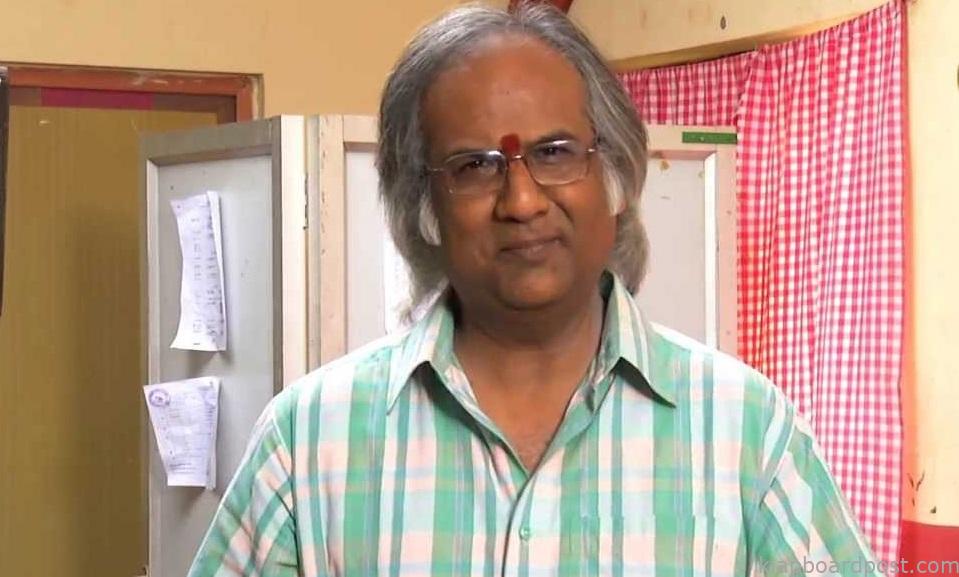
Several industry men debated that television was the reason people weren’t queuing up in theatres then and there was a phase where it was considered a threat to cinema. The same lot that criticised me owns channels now and they are seen across many soaps that run on the small screen. It’s all part of evolution. We can’t live without smartphones today and it has revolutionised communication. OTT platforms give the power to the user to watch the content of their choice at their desired time and location. It has gradually become an integral element of our lifestyle. Like what television did to me, it’ll provide a new lease of life to actors who are dependent on films, don’t have enough work and need an alternative. I’m sure the OTT medium will open up newer avenues in my career too.
In times when you’re going through a rough patch at home, does it get tough to focus on work?
No, it’s because my seniors taught me to be professional, focus on work regardless of the issues that cropped up at home. I am reminded of a situation on the set of NTR’s Viswaroopam directed by Dasari Narayana Rao. The college sequences in the film were shot at the Madras Film Institute where I was a student. The students of the college had easy accessibility to actors and I was told to meet NTR once he woke up from a nap. He (NTR) had sat on a rocking chair and was mildly snoring and his assistant was seated at a distance. An associate director working on the film was asked to read out the dialogues even as NTR was snoring. As the dialogue narration was done, NTR took a deep breath and the director was informed that he was ready for the shot. I was astounded. As a human, his body was resting but his mind had remained awake. An actor needs to tune his mind at work and not get distracted.
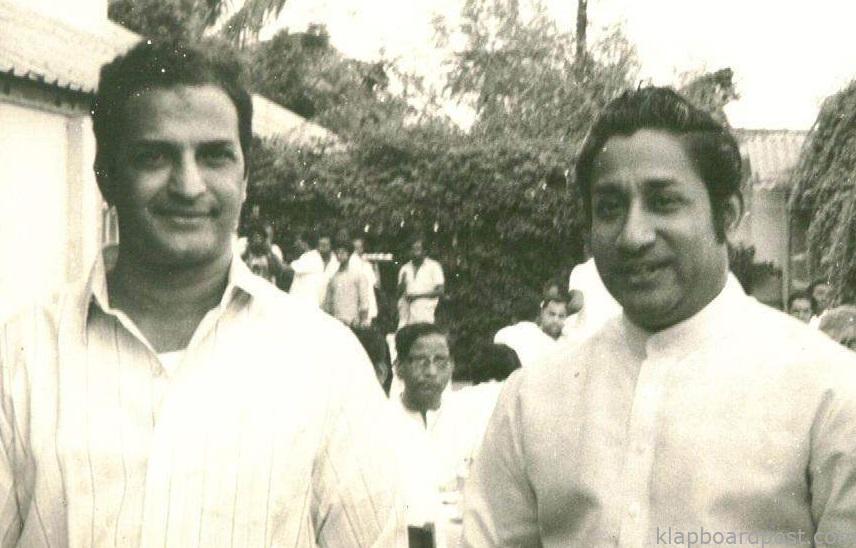
Another stalwart from the industry, Sivaji Ganesan, too, lead by example on a film shoot. Just as he landed on a set, he was informed by his staff that one of his close family members had passed away. Sivaji (sir) had asked him to not make a fuss about it and leave silently. It was a day where he was shooting a bunch of light-hearted sequences. After the shoot when someone close to Sivaji was shedding tears on the set, the director came to know of the incident. He told Sivaji that the shoot could have been shifted to another day. Sivaji had replied that it was the last day of the schedule and he didn’t want to let a personal loss affect the entire mood on the set. Incidentally, the set had to be dismantled the same day and it would have been difficult to bring the ensemble cast together on another day. Sivaji and NTR are great role models who know to compartmentalise their mind and separate work from home. And such incidents played a great role in shaping my work ethic.
With S P Balasubramanyam’s health, it’s incredible how one man unites the entire world for the hope of a quick recovery. It seems incredible how prayers can do wonders…
Keeping aside the fact that I am related to S P Balasubramanyam and me being married to his sister, I wish to look at how people adore him as a human. I have been receiving calls regularly from people, some whom I don’t even know, enquiring about his health status. When I asked them how they knew Balu, they spoke of distant connections and several instances where they heard of how SPB had proven himself to be a good human. While there’s no doubt that SPB is a singer par excellence, so many people are coming together to pray for his recovery because of the person he is. The goodness of a person can do so much and these prayers have taught me that. Everyone is sincerely praying for his comeback and it proves the impact he’s left behind on people. It shows the good that can happen when people come together for an honest cause.




